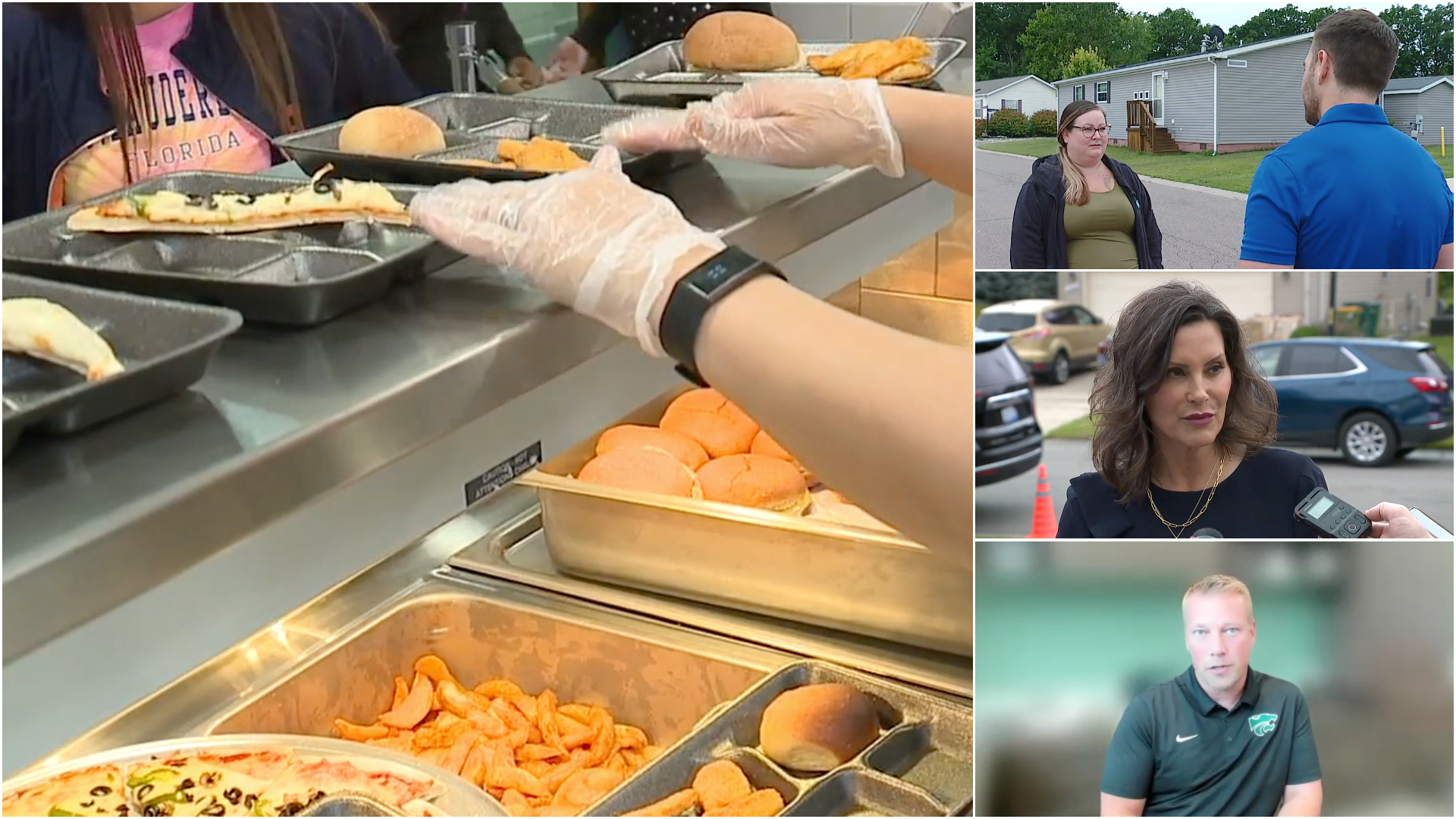ROMULUS, Mich. (WXYZ) — Michigan students have been receiving free meals at school regardless of income for the past two years. But without a budget, parents are being told that program could run out soon.
Gov. Gretchen Whitmer spoke out about the Michigan School Meals program on Wednesday in Romulus. The future hangs in the balance.
Watch the video reports below:
“Serving Michigan students breakfast and lunch at school has been a game changer for so many families, for our schools. The reports that I get back from what it’s meant for: behavior and engagement in school. It’s a meaningful investment that we’ve made, and I want to make sure that continues. And certainly without a budget, none of us can count on it. That’s why it will continue to be a priority. It was in the budget I introduced and I’m hopeful that whatever budget looks like that I sign that it will continue on. It’s important,” Whitmer said.
Hear more from Gov. Gretchen Whitmer below:
Northville mom Sam Dykes says the free school meals program has been a breath of fresh air for her family of five.
“We are a one-income family. I have three kids: one in middle school, one that is starting school and a little baby at home,” Dykes said.
But she’s been told it could end.
“It goes through the end of September. And thinking that we have less than a month to figure out OK, do we need to set aside a budget for two kids for breakfast and lunch?” Dykes said.

“Every year for the back-to-school process, we are asked to fill out an income-based form to whether or not you qualify for free meals or discounted meals. And even though I am not working, we were still denied that threshold because my husband makes too much money, according to their standards.”
According to Amanda Klein, the state government relations director with the American Heart Association, this is what they call the ALICE population. It stands for Asset Limited, Income Constrained, Employed.
“It’s not just the lower, the lowest income, but those people that are really in that middle that are doing everything right that just need a little bit, those guardrails to make sure those kids are again eating healthy meals,” Klein said.

She’s encouraging lawmakers to hammer out an education budget right away.
“It sets them up for healthier habits. We know that it helps with behavioral issues in the classroom. And we know that it is economically friendly for families,” Klein said.
Ken Bailey is the father of seventh grader in Detroit. He told me it’s been a relief knowing his daughter always has healthy, dependable meal options at school.
“When you think about the long-term effects of it, how many — thousands,” Bailey said. “It affects the kids in the households and the people on the smallest levels the most — the ones who are scraping to get by.”

He has a message for lawmakers.
“I think that legislators and everyone who’s involved in the process of making sure these kids get the funding to be able to feed these children need to sit down and have a real, real conversation with each other and say hey, this has to be something that we consider heavily and we cannot take this money from these people,” Bailey said.
Ben Mainka, superintendent of the Novi Community School District, knows firsthand the value of free school meals.
“Our students are not going to learn at their peak ability if they don’t have nourishment. And so, this is something we want to make sure we take off the table in terms of a barrier to learning for any child,” Mainka said.
He says lawmakers are creating a tremendous hardship and he’s imploring them to find a solution that works for all kids in Michigan.
“Nobody’s rainy day fund is going to carry them through the year. We are completely dependent on the money that comes in from the state. We’re a public institution. And so, as a result, we’re required to have those dollars in order to operate the programs and systems that we do. So, it would be impossible for us to operate without them,” Mainka said.






